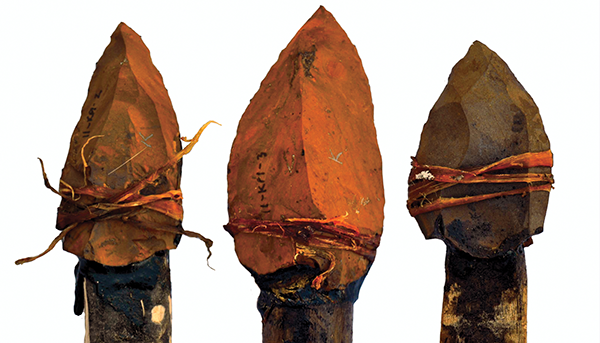
How did changes in the Earth’s climate affect our human ancestors?
First, you can probably thank climate change for the way you move today. When African climates were wetter millions of years ago, there were more trees and our earliest ancestors got around by climbing in them. Scientists think that when African climate dried and the number trees was reduced, our ancestors had to move in a new way – by walking on two legs through grasslands.
Second, as climates changed, the types of plants changed too, and this then changed kinds of foods our ancestors could access. Eating different food requires different types of teeth, which is why your teeth are different from your dog’s and why the teeth of early humans changed. Paranthropus likely ate tough grasses, so it needed large jaws and teeth. On the other hand, Homo ate softer meat, and evolved smaller teeth.
Finally, climate change made our most recent ancestors – modern humans (Homo sapiens) – rely on complex tools. To survive major changes in climate, such as those of the Ice Ages, our ancestors used tools, just like you do. When the kinds of plants and animals they could eat changed, they made new and complex tools to help them catch and cook their food. For example, to hunt big animals safely, our ancestors made tools like bows and arrows.
Really, every part of life changed for early humans when the climate did.
Be Part of
Ask An Anthropologist
By volunteering, or simply sending us feedback on the site. Scientists, teachers, writers, illustrators, and translators are all important to the program. If you are interested in helping with the website we have a volunteers page to get the process started.

